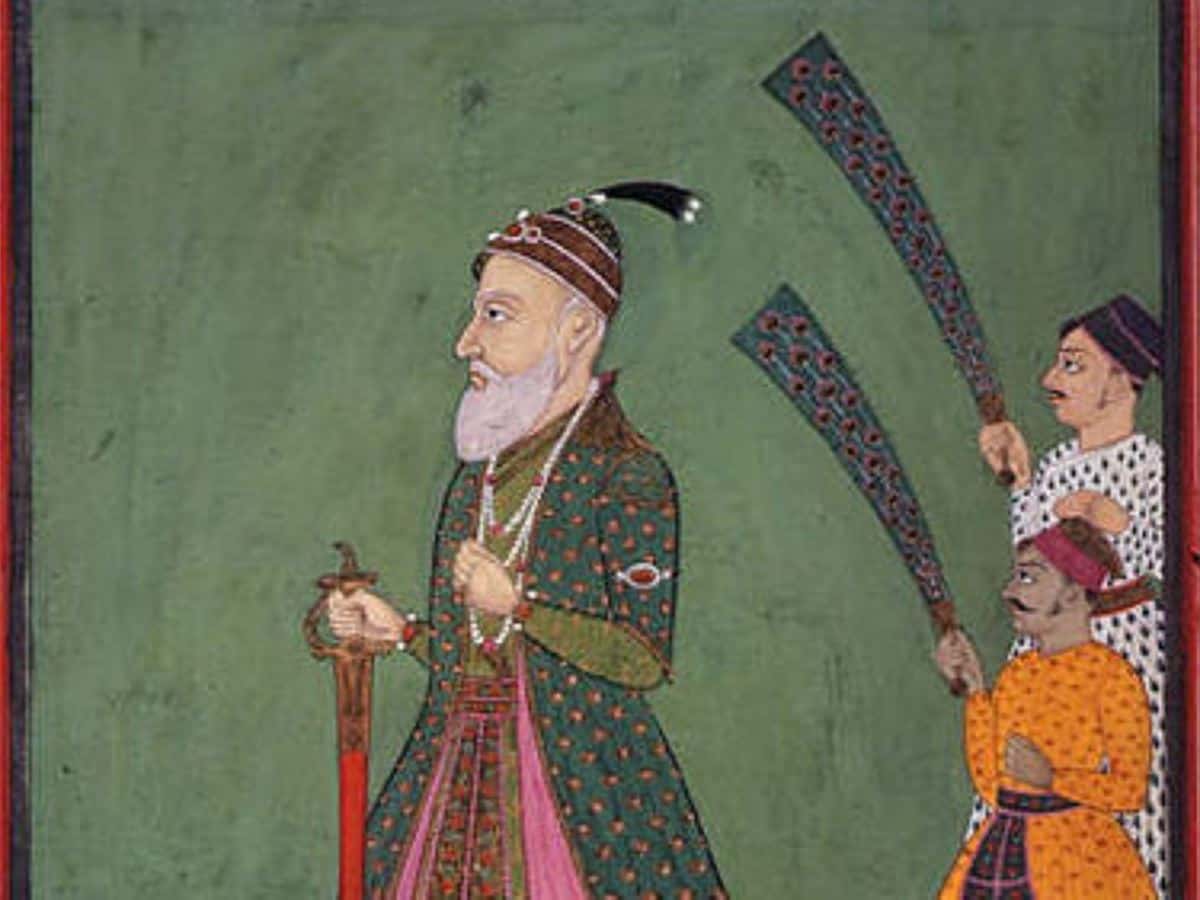Hyderabad: “Nizam Ul Mulk Asaf Jah in his early life was brought up in the traditions of Aurangzeb, probably he resembles him more closely then he does any other leader; the similarity consists in their possession of a distinct political aim and their capacity to achieve it. To both, welfare of the state was the first consideration in contradistinction to personal ends.”
Death of Aurangzeb to rise of East India Company
The following assessment was penned by Yusuf Hussain Khan, who had published the biography of the Nizam in the year 1936. Since the publication of this important study, historians of Mughal India have paid scant attention to the career of the Nizam. As often is the case, popular history ignores much of the period from the death of Aurangzeb to the rise of the East India Company in the year 1757. But between 1707 and 1748, the dynamic and outstanding career of the Nizam proved deep and lasting on the course of India’s history.

Sultan Ghalib II Bin Awadh Al Quaiti’s definite biography of the Nizam is a valuable contribution to the study of this very important post Aurangzeb period of Indian history. Focusing on the life and career of the Nizam, Sultan Ghalib chronicles the Nizam’s long successful career, battling all odds to retain the honour of the disintegrating Mughal Empire and ultimately succeeding in restoring imperial authority over the Deccan. The career of the Nizam is closely examined using a wide range of reliable primary and secondary sources, to provide a gripping account of undoubtedly, the most accomplished Mughal governor and statesmen of 18th century India.
Nizam’s career
The Nizam’s career is chronicled from his early career during the final phase of Aurangzeb’s reign, his tenure as the Wakil i Mutlaq (Grand Vazir) of the Empire, and during his final years in the Deccan. Sultan Ghalib shows his skill as a historian by constructing a sterling account of the many challenges heroically faced by the Nizam, which provides an insight and explanation to the many decisions which the Nizam was forced to undertake given the circumstances that he encountered, thus challenging and discrediting the many farfetched accusations levelled at the Nizam.
More welcoming in this biography is the detailed study of the acumen of the Nizam as an administrator and as a military strategist, with detailed and compelling accounts of the many military battles fought across the plains of Hindustan and the Deccan. The Nizam’s skilful initiative, diplomatic manipulation, and orderly administration closely followed the rigorous example set by Aurangzeb. The Nizam like Aurangzeb favoured a laborious and a simple life, abstained from the slightest of indulgences, and enjoyed tenacity of purpose even during the most desperate of circumstances, an essential quality of leader of men, especially evident in his complex relations with the Marathas and his negotiations with the Persian sovereign Nadir Shah.
Gifted with sound judgement, political genius, and a unyielding sense of duty, he was able to skilfully rearrange the various departments of governance in the Mughal Deccan, appointing men based on merit, irrespective of ethnicity and creed, enabling several Hindu Maratha’s to find employment as administrators at the court of the Nizam and thus ensuring the efficient and honest discharge of the public affairs in the Mughal Deccan. Restoring peace and order, addressing the grievance of the common man, he brought much needed order into the increasingly lapsed administration of the Mughal Deccan. The revenue system was reorganised, taxation reduced, and a strict supervision of corrupt practices, which enabled the peasantry to fully reap the fruits of their labour.
His efficient management, statesmen skills, and chivalry enabled him to oust the Maratha freebooters from the Mughal Deccan, who caused much tyranny through their brutal raids, extortion, and extraction of heavy sums which rendered the merchants, traders, and peasantry hopeless in the face of such violent oppression. Once the Nizam brought the Deccan under his sway, all attempts of Maratha encroachments, conspiracies of their secret agents, and corrupt practices were crushed, thus suppressing the oppression of the Marathas and openly abrogating the treaty enacted by the Syed Brothers and Marathas, which was not only harmful but disgraceful for the imperial reputation.
Sultan Ghalib also dwells on the character of the Nizam, which is a testament to the statesmen that he was, highlighting his fondness for the company of the learnt with whom he consulted on a daily basis, his literary pursuits of Persian texts and poetry as well as his perfect command of the Turkish language which he took much delight whilst conversing with his Turani officers. In an era of great oppression, were the Maratha’s were plundering and massacring the peasantry and were many chieftains and nobles became little concerned with the prosperity of their subjects, Nizam Ul Mulk stood out as one of the benevolent rulers of an era of anarchy. Following the policies of the Mughal Emperor’s before him, the Nizam, showed great tolerance to different faiths, and did not hesitate to appoint non Muslims to posts of reasonability. His boundless good temper, unfeigned humanity, moral and ethical conduct were such that friends and foes alike, irrespective of religion all admired and respected the Nizam.
A devout upholder of Islamic principles, endeavouring to follow Quranic teachings and the Sunnat in every of his personal conduct, as displayed even in the field of battle were the Nizam always attempted to avoid being the first to initiate the conflict.
Sultan Ghalib
Sultan Ghalib has provided us with a much needed and well written account of arguably the most accomplished Mughal governor, diplomat, and military general of 18th century India. The author has with great effort portrayed the career of the Nizam that was shaped by a number of internal and external odds that he faced in his attempt to preserve the integrity of the Mughal Empire and the dignity of the person of the Emperor. To save the imperial structure from what he had foreseen, was otherwise sure to follow, though in these valiant efforts of his, because of the opposition he met throughout due to misinterpretations of his policies, actions, and their misrepresentation, he was merely successful in delaying the inevitable.
As the famous Mughal historian Khafi Khan noted :
“Despite all the opposition which he (Nizam Ul Mulk), faced from all quarters presided by the imperial court, the Emperor had been dependent entirely upon the policies and courage of the Nizam and his sons. Had they not been around, then Muhammad Shah’s fate too would have been that of the unjustly treated Emperor Farukhsiyar”.
After completing this lucid and engaging biography, one could only have imagined what the fate of the Mughal Empire may have been had the counsels of the Nizam in the management of the Empire prevailed with an unhindered hand.
We are grateful for Sultan Ghalib for providing us a copy of this enthralling biography of the Nizam.
We wish Sultan Ghalib the best of health.

